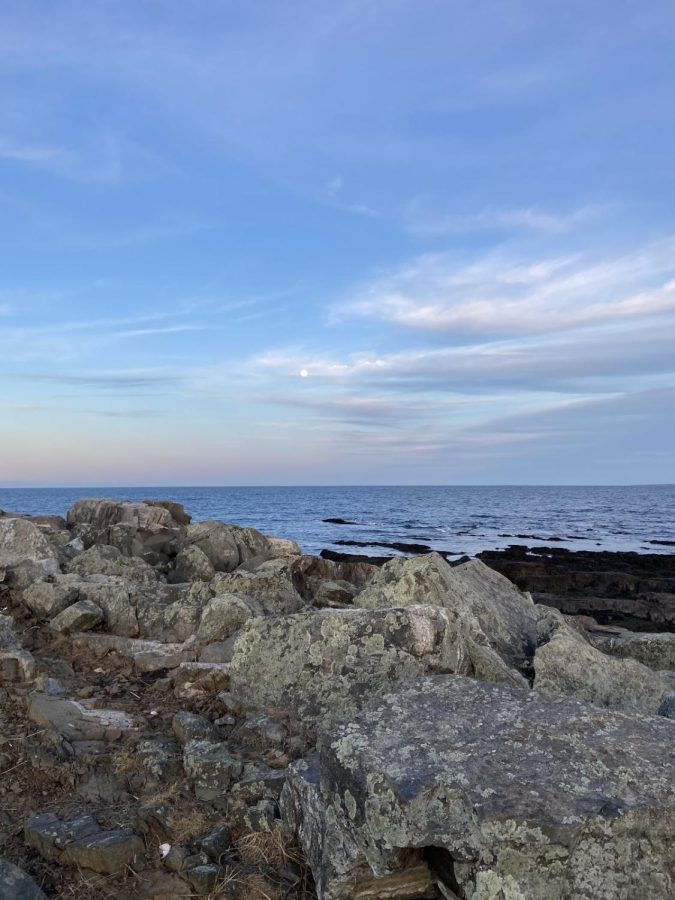Combating Climate Change in the Seacoast
Municipality & Student Justice
People from all over the world grapple with the effects of climate change. Floods in Pakistan, heatwaves in India, droughts in Europe, and intense hurricanes in the United States result in significant individual health consequences and international economic damage.
According to NASA, the global temperature has increased by 1.1 degrees Celsius since preindustrial times, and sea levels have risen 4 inches since January 1993. Upward trends persist in carbon dioxide levels as well.
As a result of the global temperature increase, ice has melted, adding water to the ocean, thereby increasing the sea level in various parts of the world.
For New Hampshire seacoast residents of all ages and backgrounds, evidence of climate change materializes through this sea level rise. According to a report by federal climate scientists, the city of Portsmouth is planning for an expected 1- to 1.7-foot sea level rise by 2050 and a 6-foot rise by 2100.
Rising sea levels increase the risk for waterfront properties and local roads, which are already flooding more than they did twenty years ago. Sea level rise brings about the looming possibility that Portsmouth and other seaside towns may not exist down the line– at least not as they do today.
However, Peter Britz, the Portsmouth planning and sustainability director explains that climate change is represented by far more than visual geographic effects: “Increased temperatures, as brought on by an excess of greenhouse gas emissions, have caused food and energy prices to skyrocket, burdening millions of people across the globe, including those within our own community,” Britz said. “In our area, the effects of climate change seem intangible in the sense that sea levels and temperatures haven’t changed enough to alter our ways of life completely…. But it will.”
Portsmouth is carrying out a climate action plan to address the threats of climate change, which gains funding from the city council. The program is meant to engage in public outreach with the goal of reaching underserved populations while combating climate change. The program plans to raise awareness about the potential impacts of climate change in the area while encouraging action from locals.
“The municipalities only account for 1-2% of local emissions. Everyone else makes up that 98%. We need the city on board to take action,” says Britz. “If our plan is successful, the city will gain support to spend more money at the city level to encourage and fund action.”
Among the many groups taking action in the Seacoast are the Portsmouth High School ECO Club and the student-run non-profit organization Seacoast Students 4 Sustainability (SS4S).
Students in these organizations facilitate beach clean-ups alongside the Blue Ocean Society, pick up trash around the school campus, and even get involved in school and city legislation surrounding climate change.
Recently, students have attended city council meetings to contribute to city legislation, while advocating for sustainable alternatives within the school.
“The up-and-coming generation of leaders and activists is so passionate about climate change,” Britz says, “I am hopeful about the future, but that’s not to say it won’t be a challenge. Hope brings people together, and I believe in the strength of our community.”
Sources:
Britz, Peter. Phone interview. February, 2023.
City of Portsmouth. “Coastal Resilience Initiative.” City of Portsmouth NH, www.cityofportsmouth.com/planportsmouth/cri. Accessed 16 Mar. 2023.
NASA. “Understanding our planet to benefit humankind.” NASA, climate.nasa.gov/. Accessed 16 Mar. 2023.








Diana • Mar 27, 2023 at 10:17 am
The involvement of the PHS Eco Club and SS4S actively engaging in the greater seacoast action groups like Seacoast CAN (Climate Action Now) and PCA (Portsmouth Climate Action) amongst others strengthens the resolve to step up efforts even further. Please take a well-deserved bow and carry on! Along with a Portsmouth Climate Action Plan at the municipal level, how about the state level? Curbside food scrap pickup anyone? Micro-biodigester? Apply for grants now that federal funds are even more available than before thanks to the Inflation Reduction Act? Like I said, please take a bow and keep up the amazing work!!